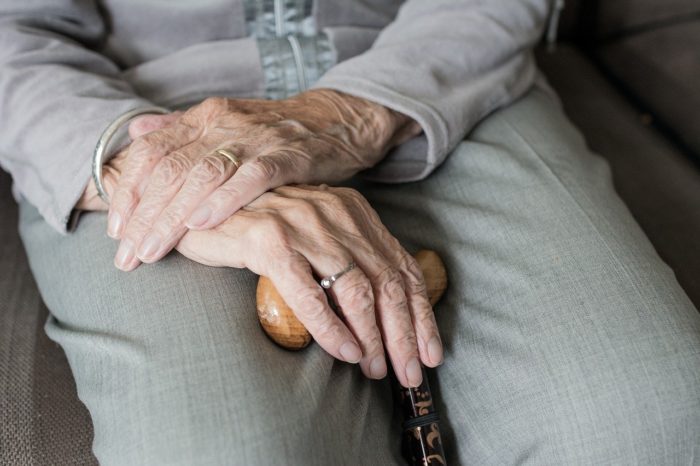
The Catholic Bishops have called for an official inquiry into why nursing home facilities in Ireland were so badly affected by covid19.
Residents of nursing homes, accounted for 63% of coronavirus deaths in Ireland, a proportion which is the second worst in the world.
One GP, Marcus de Brun, resigned from the board of the Medical Council in protest, attributing the torrid situation to failures by the Department of Health and Minister Simon Harris.
In a statement on Saturday, the Council for Healthcare of the Irish Episcopal Conference said that lessons must be learned, and they “would welcome appropriate inquiries into the reasons why nursing care facilities were so badly affected”.
“Every resident is someone’s mother, father, grandparent, brother, sister, aunt, uncle, or friend. They have played their part over many decades in contributing to their communities and to the economy. The lives of those who live in such facilities should be valued, respected, and enhanced”.
“Human life is sacred and precious from the child in the womb to the elderly person in care. We must do all that we can to protect life and to improve the quality of life for those who are particularly vulnerable. At this time, the coronavirus crisis presents an opportunity for society to reflect on where it stands in relation to the elderly and to others who are most vulnerable among us. The lessons learned will enable us to build a culture of life and care where everyone is supported and all are entitled to life-protecting services and facilities”.
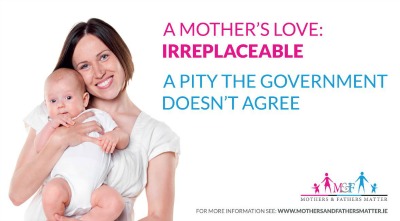
The importance of both mothers and fathers was celebrated by a European Federation of Catholic Family Associations on Monday to mark the UN Global Day of Parents.
FAFCE’s President, Vincenzo Bassi, said parents are those who take joyful responsibility in caring for their children, in a free gift of themselves. “This openness to life generates new vitality far beyond the family itself, benefitting the society at large”, he said, and added that the current crisis is highlighting to all the importance of the family as the centre of the society. “Let’s take the time, today, to honour fathers and mothers and to applaud them, recognising their fundamental role during the current pandemic”.
Bassi also said there was a certain irony in the UN’s celebration.
“Despite many declarations, family is often not considered as a priority, while the role of parents has been overshadowed by the so called new rights. These ‘new rights’, by affirming the right to have a child, neglect the right of every child to have a father and a mother”.
Two weeks ago, FAFCE warned of a shocking video showing 46 new-born babies via the practice of surrogacy in Ukraine: a small hint into the hidden reality of this lucrative business. “These babies were displaced there, as objects in the markets, waiting for their buyers to come and pick them up,” Bassi continued, highlighting that “there is no right to generate or to have a child, but only the responsibility to take care of his/her life for the common good. The community should help the parents to not feel alone, awarding them when they take on this responsibility as parents”.

The US Supreme Court turned aside a California church’s request to lift a lockdown measure that limited church attendance to 25 percent of building capacity or a maximum of 100 attendees.
Lawyers for the church argued that the order violates the First Amendment’s religious exercise clause and discriminates against places of worship because “no comparable let alone equal limitations” are imposed on secular activities such as manufacturing, retail merchandising, or marijuana or liquor dispensaries.
In a three-page opinion, Chief Justice Roberts disagreed, saying that similar or more severe measures have been applied to comparable secular gatherings where people are in close proximity for an extended period of time, such as lectures, concerts, movie showings, spectator sports, and theatrical performances.
He said the state’s order only treats more leniently to activities that aren’t comparable, “such as operating grocery stores, banks, and laundromats, in which people neither congregate in large groups nor remain in close proximity for extended periods.”
Roberts said that once broad limits are not exceeded, it isn’t the role of the federal judiciary to be second-guessing officials who appear to be acting in good faith while making decisions about public health.
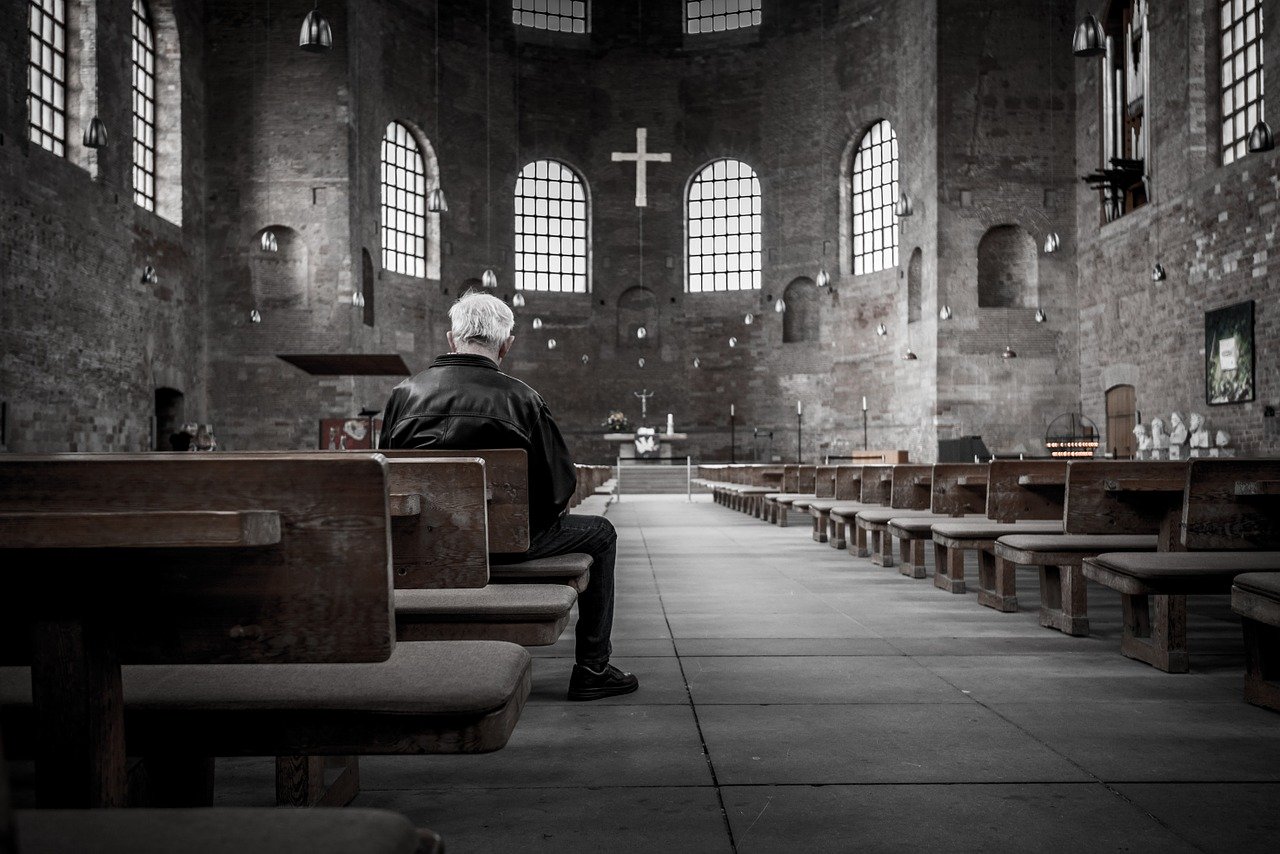
Religious worship matter because it lies at the essence of many people’s lives.
That’s according to human rights lawyer and former NI police ombudsman, Baroness Nuala O’Loan.
She was speaking as debate continued about when churches might reopen for public worship.
She told the Irish Catholic newspaper that the ability to come together to pray, to go to Mass, to receive sacraments is as important as the ability to go to the supermarket or many other things under discussion right now.
“We’ve always been able to go to the supermarket because it’s always been recognised that we need to buy food, the Mass and the Sacraments for us is food for the soul,” she said.
In a secular society, she added, there’s a “lack of recognition” of the spiritual “as manifest in worship such as that in the Catholic Church”.
“I think for that reason those who are believers need to speak up and say it wasn’t for nothing that there’s a recognised right to freedom of religion but it’s important that we keep the issue of spirituality and the right to practice your religion right at the forefront and that it’s not something that doesn’t matter, it’s not something that is engaged in by self-serving people, rather it’s the essence of the lives of so many people in Ireland.”
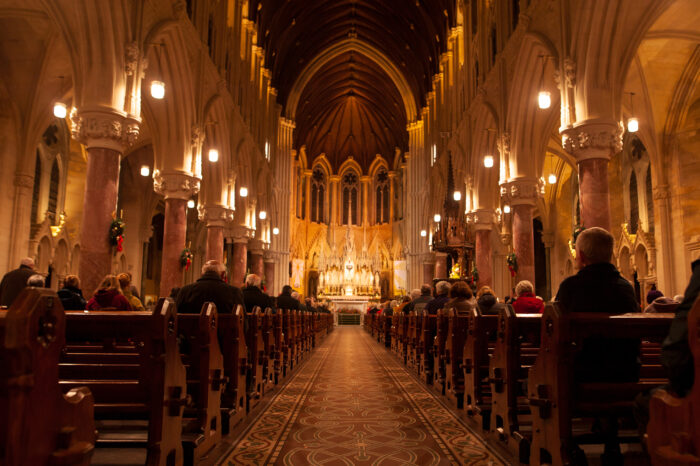
After California relaxed public health restrictions on churches on Monday, the nation’s largest diocese announced its plan on Tuesday to resume public Masses.
In a two-step plan for parishes to reopen and offer the sacraments, the Archdiocese of Los Angeles on Tuesday provided a checklist for each parish to observe. The state’s dioceses and archdioceses have all curtailed public Masses since March, but starting June 3 the archdiocese will allow for public Masses.
While Governor Gavin Newsom’s four-step reopening plan for the state had initially placed churches in stage 3 of reopening, that of “higher-risk workplaces,” on Monday the state announced that churches could begin reopening subject to county restrictions. The state is currently in stage 2 of Newsom’s reopening plan, where manufacturing and some retail businesses have been allowed to reopen.
Now, California has allowed churches to open at 25% capacity with a maximum of 100 people.
The state’s Catholic Conference called the new state guidelines “positive, constructive and fundamentally in alignment” with the diocesan reopening plans, and expressed gratitude for being “a part of the consultation.”
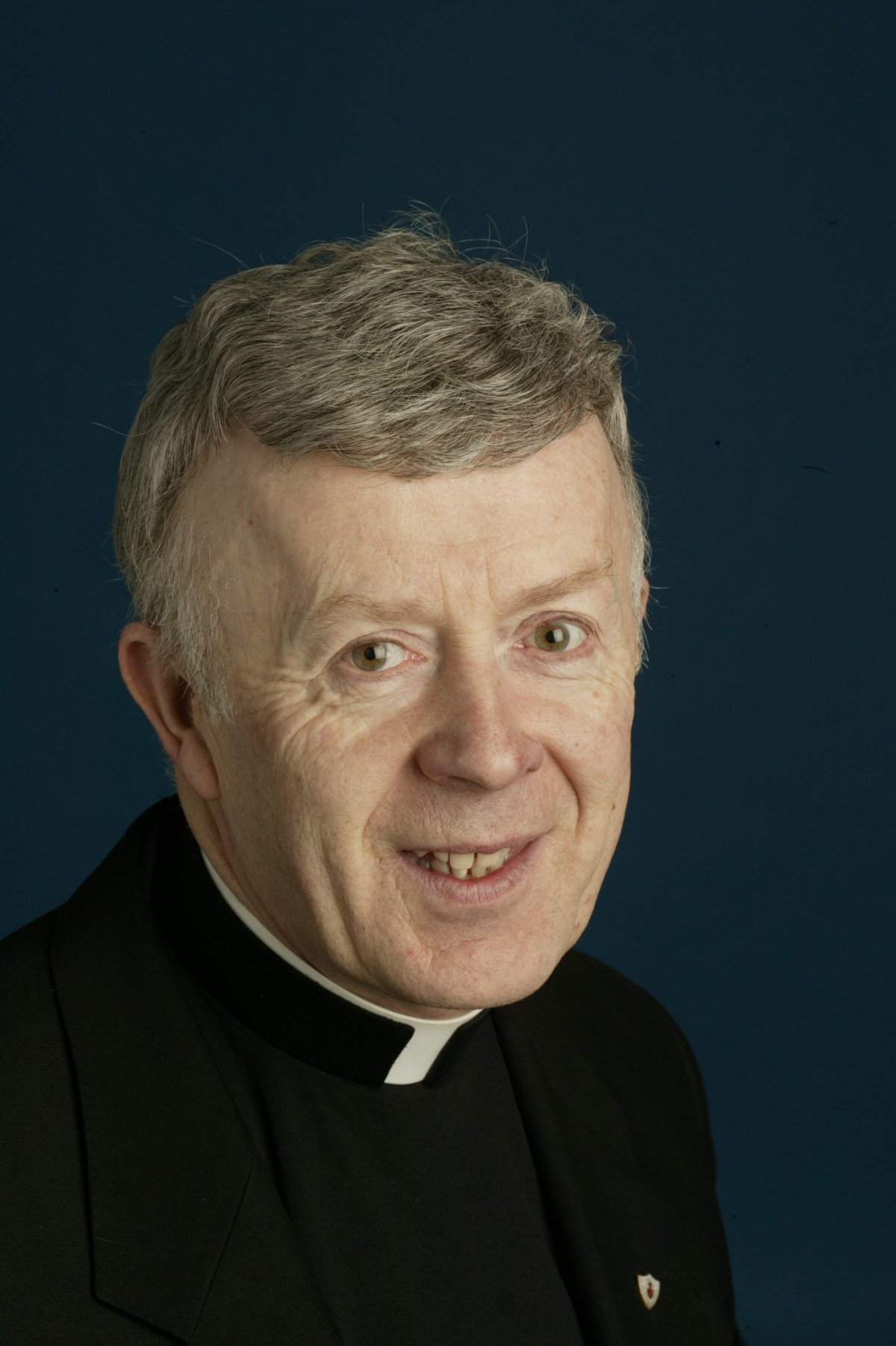
This year’s Annual Reek-Sunday, pilgrim-walk has been cancelled.
The climb of Croagh Patrick near Westport, Mayo, was due to take place on July 26th, one week after the Government will allow the public celebration of mass in churches.
The decision was taken to help the national effort to suppress the coronavirus.
“Having consulted with the various statutory and non-statutory bodies involved in the Reek pilgrimage, having in mind the Government’s “Roadmap” for emerging from the coronavirus pandemic, and accepting the clear public health advice offered, it is necessary to cancel the 2020 National Pilgrimage to Croagh Patrick on 26 July”, a statement said.
Archbishop of Tuam, Michael Neary, said he hopes the event will return in July 2021.
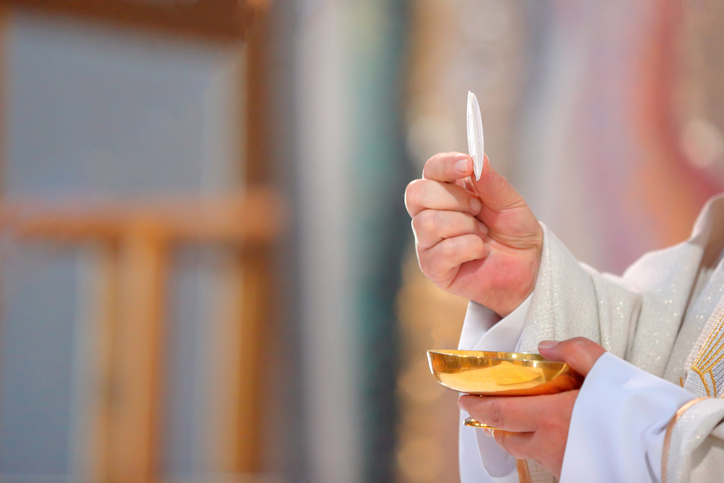
The Catholic Archdiocese of Baltimore said it has “serious concerns” about public health guidance from Howard County, Maryland, which prohibits the reception of Communion as a condition for churches to reopen during the coronavirus pandemic.
“For the Catholic community, the reception of Communion is central to our faith lives and to our public worship,” said a statement from the archdiocese on Wednesday.
Howard County’s Executive Order #2020-09, published on May 26, outlines the conditions and regulations that must be met for non-essential businesses–which in Maryland includes churches and other houses of worship–to resume operations.
The order provides that “there shall be no consumption of food or beverage of any kind before, during, or after religious services, including food or beverage that would typically be consumed as part of a religious service.”
Since the consumption of the consecrated species at Mass, at least by the celebrant, is an integral part of the Eucharistic rite, the order effectively bans the licit celebration of Mass in the county.
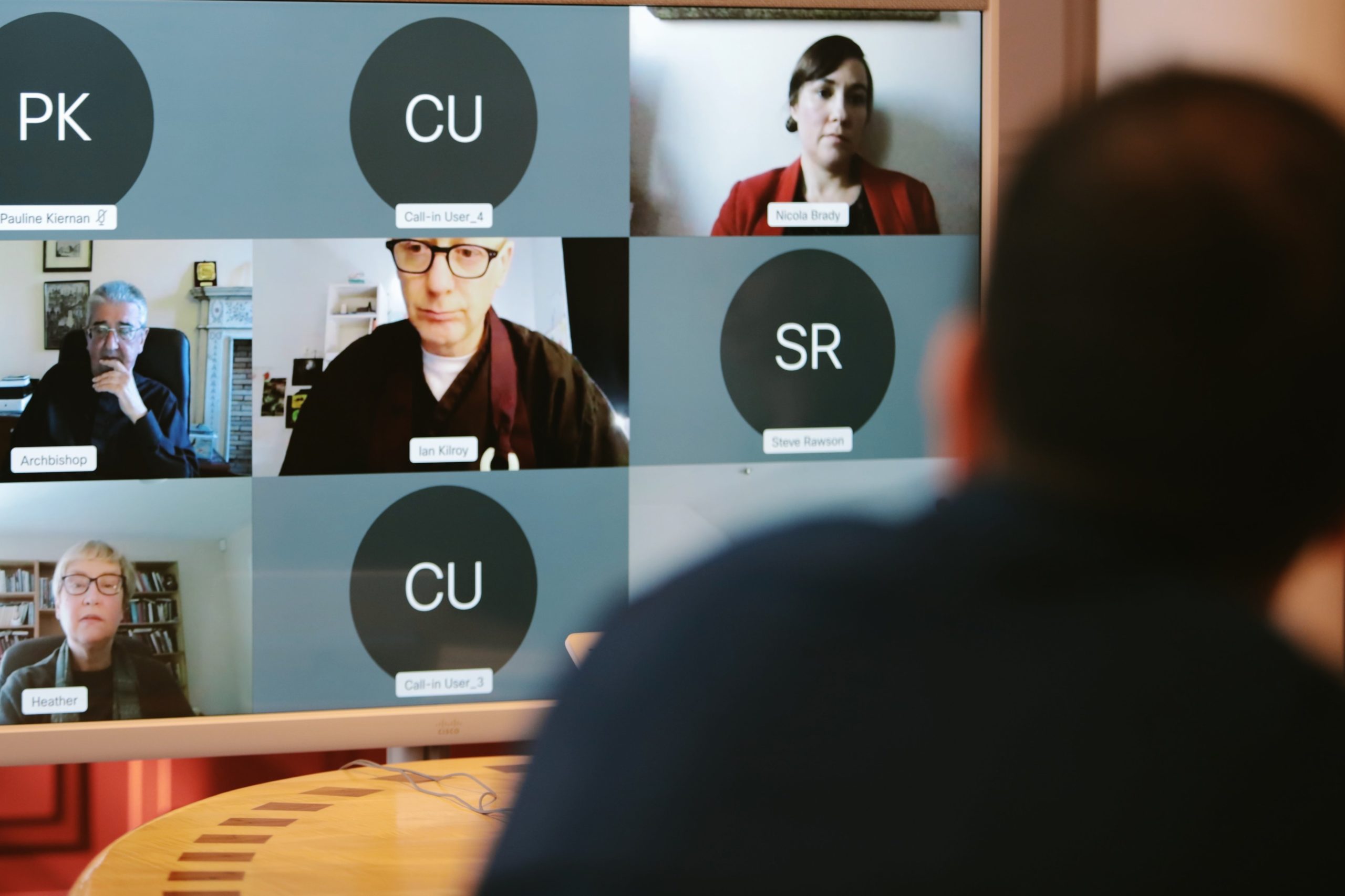
Labour Alan Kelly has pleaded with Taoiseach Leo Varadkar to increase the number of people allowed to attend funerals from 10 to 30.
“We have to do something,” Mr Kelly said because people were suffering.
Mr Kelly said the rules were too rigid and should be relaxed to allow more people attend because many families were larger than the numbers allowed to attend.
He pointed out that everybody knew the social distancing rules and these could still be observed while allowing more to attend ceremonies.
Mr Varadkar said the Government had begun discussions with church leaders about changing the rules for the number of people attending funerals.
He acknowledged that it was a really difficult issue for people and said he had spoken to people who had to make the decision about who could attend and excluding the 11th and more people.
The size of a church building would have an impact on who could attend, he said and that a greater number of mourners could be accommodated in larger places or worship.
The churches had also asked about allowing baptisms and small weddings and these were part of the discussions, he added.
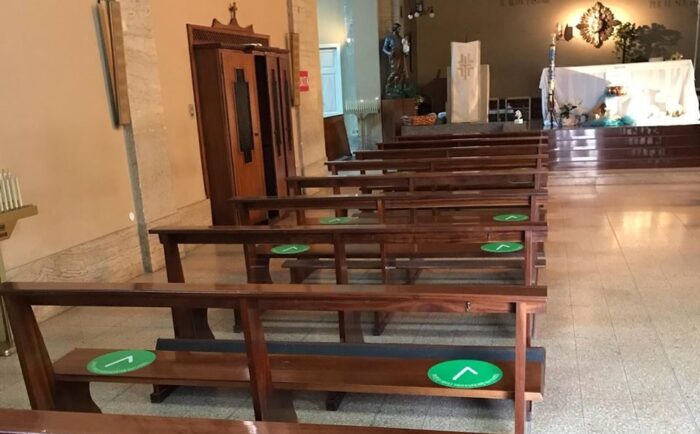
The parishioners of one Dublin church have been quietly attending daily mass, contrary to lockdown guidelines, as the church has not locked its doors to the public while mass is being celebrated.
The Church of the Guardian Angels in Blackrock, Co Dublin, is one of many churches in Dublin that have open for private prayer in accord with both Government and Dublin diocesan guidelines.
However, extra.ie reported that people have been showing up at 10am, as the priests of the parish celebrate mass, and have remained to pray and take communion. They reported that 39 people were present during mass on Wednesday.
A spokesperson for the church said that there is usually only 10 people in attendance and it was the first day so many people had been in the church.
Former PP, Fr Tony Gaughan said the church being open helps people during these times and said that the church is sticking to government guidelines on social distancing.
“People are anxious to get back to normal. I see no problem once people are spaced out when you have a huge area rather than a small little church”.
“Funerals are very sad at the moment. Once the people are spaced out I don’t have any problem with them being there”.
“The Blessed Sacrament is exposed every morning from after the 10 o’clock mass and they’re coming in in ones and twos throughout the day. It’s nice for them. The parish priest has the whole place washed each evening.”
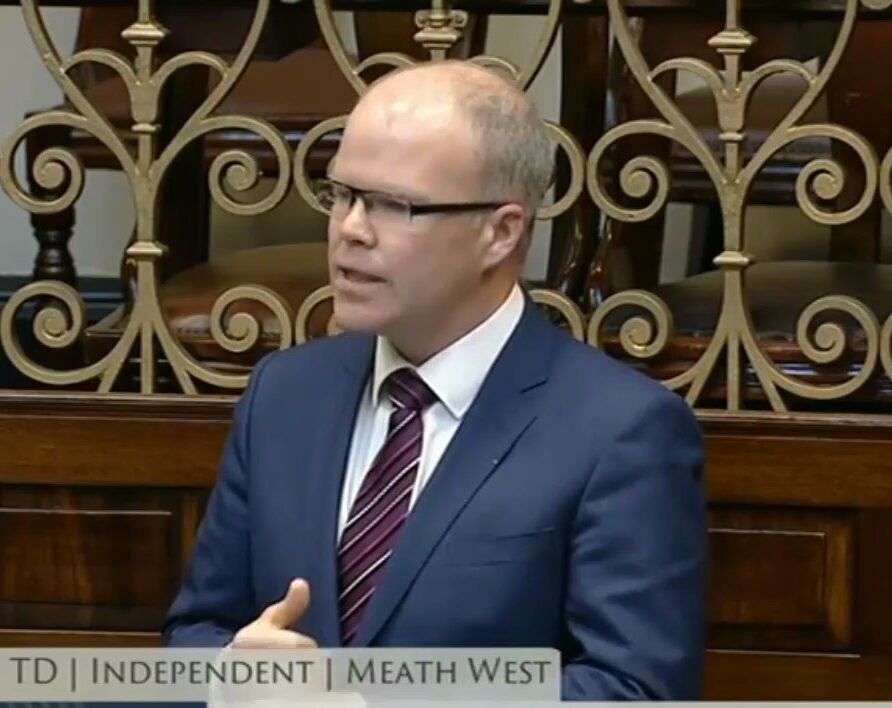
Minority faith groups have joined calls for places of worship to be allowed reopen for public services sooner than the Government’s July 20th timetable, a date that would make the country one of the last in Europe to do so.
Aontú leader Deputy Peadar Tóibín met with members of minority faiths yesterday morning. He said many immigrants who come to this country take great solace in joining their local church, mosque or synagogue where they find community and friendship.
Deputy Tóibín said if the Taoiseach can gather with friends in the Phoneix Park, there is no logic in deferring the phased re-opening of places of worship until July. “The Churches that I have spoken to have outlined their ideas and draft plans to me which will allow them socially distance for the duration of their services. This includes religious ceremonies in car parks or even in cars if raining with the service transmitted over radio”.
“We think it is very important that our immigrant community are protected at this time and allowed to gather in a physically distant manner to prevent them from succumbing to isolation, homesickness and loneliness”.
He also called for an easing of the rules around funerals in large graveyards.
“Supporting friends and families as they bring their loved ones on their final journey is an essential part of life throughout Ireland”.
“We are calling again on the government to facilitate funerals and religious practice to take place in a socially distant manner. I am calling on An Taoiseach to listen to the concerns of faith groups and hear them out in the detailed ideas and plans they have drafted for how they could reopen their places of worship while still adhering to public health measures”, concluded the deputy.